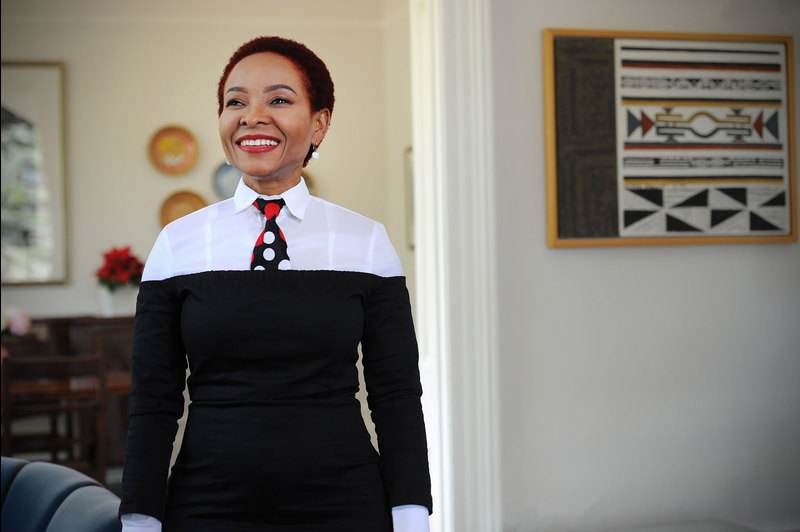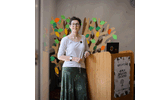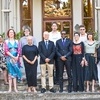Building expertise through research is the best investment SA can make in its future
25 February 2021 | Story Mamokgethi Phakeng. Photo Lerato Maduna. Read time 6 min.
By not investing in research, we risk repeating the mistake our previous government made in allowing foreign firms to mine our geological riches, said the University of Cape Town’s (UCT) vice-chancellor, Professor Mamokgethi Phakeng.
If a single word could sum up the focus of the world today, I think it must be “resources”. Our lives are dominated by the need for water, land, food, energy, minerals, health and other resources — and by our decisions on how to expend those resources through technology, medicine, transportation, governance, business, education, commerce and other sectors. As we await the national budget announcement there is one SA resource that is often overlooked, but is so essential to our nation that it has life-or-death implications. That resource is SA research.
Research capacity is the asset that can help South Africans make the optimum use of our other limited resources. Building our knowledge and expertise through research is the best investment SA can make towards the future of this country. Alternatively, by not investing in research we run the risk of repeating the mistake our previous government made in allowing foreign companies to mine our geological riches. Because those agreements did not include a way for SA to beneficiate the minerals that were mined, the riches of those diggings left the country. Our human capacity can be taken from us in the same way.
Research allows us to better understand a world that is being disrupted in many ways. Before Covid-19 struck we were seeing the effects of climate change, poverty and inequality and marginalisation. The fourth Industrial Revolution was already starting to change how we bank, shop, educate, travel, communicate and do business. Those innovations are the result of research. SA researchers, with our first-hand experience with the needs of the poor and marginalised, are uniquely positioned to help lead our changing world to meet those needs. But first, as a nation we need to invest in education and research, to build up the knowledge and understanding to address these problems.
Research builds knowledge, and knowledge is power. For instance, in 2010, the South Africans who knew they had HIV could expect to live to an average age of 56; today that life expectancy is more than 63 years. According to statistics provided by Avert, 90% of people living with HIV in SA were aware of their status in 2018 and so had taken the first step in managing the disease.
Over the years we have developed the world’s largest antiretroviral treatment programme. We have reduced the rate of mother-to-child-transmission of HIV among pregnant women to as low as 1%. In 2008, Prof Elmi Muller at the University of Cape Town completed the world’s first kidney transplant between an HIV-positive patient and donor — an unheard-of procedure at the time, which has opened the way for HIV-positive patients to survive diseases like kidney and liver failure. While we continue to search for a vaccine for HIV, what we are learning through research is allowing HIV-positive people to live longer, healthier and more productive lives today than they could have done 20 years ago.
Modern research is collaborative and multidisciplinary. Studies into HIV involve not only medical and pharmaceutical experts but also professionals in economics, governance, law, psychology and other related fields, including those in humanities, such as social work, education, communication, family dynamics, sexuality and gender studies. Humanities-based research into past pandemics has helped epidemiologists understand the social and historical context for Covid-19. Even theoretical research, such as in particle physics, can deliver practical benefits. The light-emitting diode, or LED, is a product of physics research.
I call this kind of result “disruptive excellence”. It is excellence because it delivers a high quality of work that creates new opportunities in a world that desperately needs to grow beyond the challenges we face today. It is disruptive because it can revolutionise the world’s thinking, not only about the challenges we are addressing, but also about Africans. The world is used to seeing Africa as a continent of need — but we are so much more than that. Our young people need to know and develop their own potential as Africans to help the world solve humanity’s wicked problems.
We are a continent of creators, innovators, entrepreneurs, teachers and professionals. Our universities and research institutions are not ivory towers of elite knowledge. Instead, we consider real problems faced by fellow South Africans. It is time that, as a nation, we begin thinking of ourselves in the light of what we can offer the world. To do so, we need to invest in research that will build our own potential. This is no small task. But it is essential to our future.
It is also essential that SA research is funded by South Africans. Generous foreign funding has made a great deal of local research possible, especially into health issues such as HIV and tuberculosis. But when we rely too heavily on outside funding we are relying on those funders to set our research agenda. We need to also explore the urgent local issues that are likely to be ignored by the global north. That means we need to fund our own research.
Cutting-edge research and training takes years, even lifetimes. It involves not only seasoned academics but also their students — postgraduates who earn their master’s and doctorate degrees by investigating a specific aspect of their chosen field of study. The most recent national statistics indicate that SA has only about 50 PhDs per one-million people — a ratio that is far lower than countries in the global north and even Tunisia, which has 118 PhDs per one-million people.
So the capacity for research in this country is limited. If our young researchers cannot find work here — if funding for research is not available — they may follow other Africans to take up opportunities in countries that are more heavily invested in research. In that way we would lose not only our knowledge, but our future. That is a cost no country can afford.
This article first appeared on BusinessLive.










